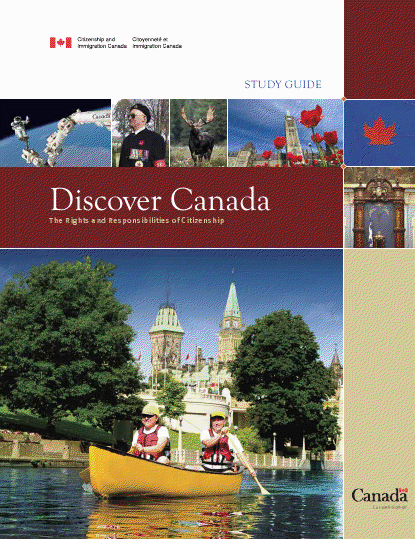Prepare for the Canadian Citizenship Test with Confidence
Practice with real-style questions based on the official Discover Canada: The Rights and Responsibilities of Citizenship study guide.
Take unlimited practice tests, improve your knowledge, and get ready to pass the Canadian Citizenship Test on your first attempt.

Report a question

Empowering Your Path to Canadian Citizenship with Quality Resources
Preparing for the Canadian Citizenship Test can feel overwhelming, but the right tools make all the difference. Our platform provides reliable study materials, realistic practice exams, and easy-to-understand explanations based on the official Discover Canada: The Rights and Responsibilities of Citizenship guide.
Whether you are just starting your study journey or reviewing before your test day, our practice resources help you build confidence and pass your exam successfully.
Comprehensive Practice Tests
Our extensive collection of Canadian citizenship practice tests mirrors the real exam format. Each test includes realistic multiple-choice questions, clear explanations, and topics based on the official study guide so you know exactly what to expect on test day.
User-Friendly Interface
Study anytime with a simple, distraction-free interface designed for easy learning. Our platform works seamlessly on mobile phones, tablets, and computers, allowing you to practice whenever and wherever it is convenient.
Study Anytime, Anywhere
Access unlimited practice questions and study materials whenever you need them. Whether you have five minutes or an hour, our flexible learning system helps you prepare efficiently for the Canadian Citizenship Test.
Practice by Key Categories
Preparing for the Canadian Citizenship Test is easier when you study one topic at a time. Our category-based practice quizzes allow you to focus on the most important areas covered in the official Discover Canada: The Rights and Responsibilities of Citizenship study guide.
Choose a category below and start practicing with realistic exam-style questions.
Canadian History
Learn about the key events, people, and milestones that shaped Canada into the country it is today. Practice questions cover early Indigenous history, European exploration, Confederation, and modern Canadian developments.
Topics include:
Indigenous peoples of Canada
Confederation and nation-building
Important historical events
Famous Canadians and leaders
Canadian Government & Politics
Understand how Canada’s political system works and how citizens participate in democracy.
Topics include:
The structure of the federal government
Parliament and the roles of the House of Commons and Senate
The Prime Minister and Cabinet
Elections and voting rights
Rights and Responsibilities of Citizens
Citizens of Canada enjoy important rights and freedoms while also having responsibilities to their communities and the country.
Topics include:
Canadian Charter rights and freedoms
Responsibilities such as obeying the law and voting
Equality and multiculturalism
Civic participation
Geography of Canada
Test your knowledge of Canada’s provinces, territories, major cities, and natural features.
Topics include:
Provinces and territories
Major regions of Canada
Natural resources and landscapes
Important geographic landmarks
Canadian Symbols & Culture
Discover the national symbols, traditions, and cultural values that represent Canada.
Topics include:
National symbols such as the maple leaf
Canadian holidays and traditions
Cultural diversity and multiculturalism
National anthem and heritage
Economy & Modern Canada
Learn about Canada’s modern economy, industries, and role in the world.
Topics include:
Major industries and trade
Canada’s global partnerships
Economic regions
Innovation and development
What Our Users Say
- Based on Google Reviews
Discover Canada – The Rights and Responsibilities of Citizenship
Discover Canada: The Rights and Responsibilities of Citizenship is used by newcomers to study for the citizenship test. It also contains information about the history of Canada, how our government works, symbols of Canada and its regions.

A Comprehensive Online Resource for Canadian Citizenship Test Preparation
Our mission is to make preparing for the Canadian Citizenship Test easier for everyone. We provide high-quality practice tests, clear explanations, and accessible learning tools so applicants can study effectively and feel confident on test day. Our content is carefully designed around the official Discover Canada: The Rights and Responsibilities of Citizenship study guide, ensuring that learners focus on the topics that truly matter for the exam.
Fast-Track Your Citizenship Preparation
Preparing for citizenship should be simple and accessible. Our platform is built to help future Canadians learn faster with structured practice tests, instant results, and detailed explanations. With hundreds of carefully designed questions based on Discover Canada: The Rights and Responsibilities of Citizenship, you can strengthen your knowledge and approach your test with confidence.
